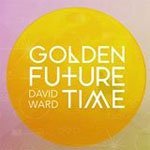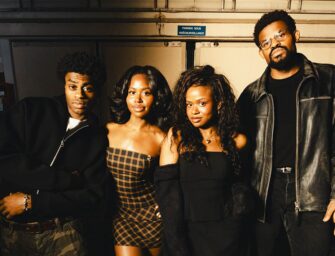On ‘Golden Future Time’, David Ward mixes the doomy melodies of alt-rock with soulful harmonies and a beautifully fragile falsetto

 uch has been made of the similarity that David Ward bears to two of the most unique and gifted voices to have graced the world of songwriting. Some may consider it a curse to have to step out from the thick shadows cast by the colossal talents of Jeff Buckley and Stevie Wonder. Ward though takes this heavy burden and uses it as means to hide from his contemporaries and render a piece of music that hints towards a timelessness lacking in many of his peers.
uch has been made of the similarity that David Ward bears to two of the most unique and gifted voices to have graced the world of songwriting. Some may consider it a curse to have to step out from the thick shadows cast by the colossal talents of Jeff Buckley and Stevie Wonder. Ward though takes this heavy burden and uses it as means to hide from his contemporaries and render a piece of music that hints towards a timelessness lacking in many of his peers.The Buckley comparison is an obvious and immediate one. Opener Slowly Through The Night betrays a voice that has the same velvet elasticity and snowflake frailty of Buckley. It’s one that reduces all to slow motion, with the ability to leave a falling glass hanging in the air, twisting before your eyes and landing upright, without a shard grazing the floor. And it’s not just Ward’s vocal that has the air of the legendary Californian songwriter.
A third into the song a moody melody, one that could have leapt straight from the sessions of the doomed recording sessions of the follow-up to Grace, announces itself, before morphing into a staccato rift that has the same, Led Zepplin made alt-rock quality that informed Buckley’s less delicate guitar moments.
It’s a superb introduction to Lost, side A of Ward’s ambitious double album, one that’s followed by Side A’s equally fine, Dark Side Of The Moon esque, title track. Ghost In The Woods then reveals a beautifully chilly quality, with a little of Edith Piaf’s flamboyant misery decorating its silky melodies. Side A is closed by Be Here. A touching piano ballad that sees Ward morph from alt-rock troubadour to soul crooner; as though Jeff Buckley closed a set with a cover of Stevie Wonder, one taught to him by Rufus Wainwright.
Golden Future Time then has Ward mixing the soulful funk of classic Stevie Wonder with the rolling pop vocal of early Michael Jackson. Oddly, for such a departure from what’s come before, the transition is in no way laboured and is as seamless as a shirt made of dust. This theme of soulful pop is continued with Bird In The Hand, before Side B is rounded off by the staccato, jazz-funk of Fly.
If one criticism is to be raised then it’s that Ward wears his influences so well that you’re not sure quite how far he’s letting you in. For the enduring quality of Buckley and Wonder was not simply in their ability to craft fine songs but their willingness to show you the colour of their soul; as it stands Ward’s could be orange or grey.
Golden Future Time is a bravely ambitious recording by a gifted songwriter and, despite having clear markers in the 70s’, 80s’ and 90s’, one that seems both out of time and entirely without time; as though it’s all those decades at once—or just a memory of them.
Verdict: Soulful, yet moody, alt-rock.
![]()
![]()
![]()
![]()
![]()
Damien Girling








![Interview: Jessie Jo Dillon [2025]](https://www.songwritingmagazine.co.uk/wp-content/uploads/jessie-jo-dillon-2-by-libby-danforth-335x256.jpg)


























Related Articles